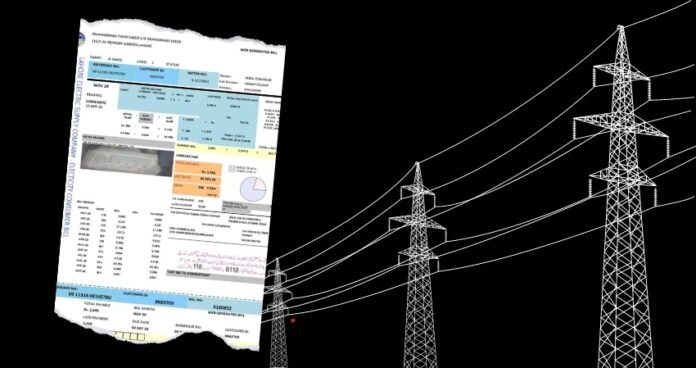A recent audit report has laid bare an alarming truth—under the Power Division, eight electricity distribution companies (DISCOs) have collectively overbilled consumers by a staggering Rs. 244 billion. This revelation comes at a time when the public outcry over inflated electricity bills is reaching new heights. Consumers across the country, particularly those from the lower-middle class, are receiving bills based on fake or exaggerated readings, pushing them into financial distress. The question that now demands urgent answers is: How long will this daylight robbery continue unchecked?
Overbilling is nothing short of institutional theft. It targets the most vulnerable sections of society—those already struggling to make ends meet in a harsh economic climate. Beyond the false charges, overbilling pushes many consumers into higher tariff slabs, thereby multiplying their financial burden. In essence, the inefficiencies and losses of the power distribution system are being unfairly transferred to the public. This is not only unethical but also deeply unjust.
It is well-known that overbilling is used by DISCOs as a tool to cover up technical losses, supply deficits, and mismanagement. Instead of improving their infrastructure or reducing theft and transmission losses, officials take the easy way out—by billing more than what is consumed. This practice erodes public trust and tarnishes the reputation of power distribution companies, further distancing them from the very people they are meant to serve.
While the National Electric Power Regulatory Authority (NEPRA) introduced a law last year mandating up to three years of punishment for overbilling, its implementation has been virtually non-existent. DISCOs have ignored this regulation with impunity, and their defiance reflects a system that protects the corrupt and punishes the honest.
It is now imperative for the government to intervene decisively. Mere statements and symbolic actions are no longer enough. The officials—whether senior executives or field staff—responsible for orchestrating or enabling this massive overbilling scheme must be held accountable under the law. There must be swift and transparent investigations, followed by visible consequences. Anything less will only encourage further corruption.
Moreover, a long-term solution must be pursued: the complete digitalization of the billing system. Manual readings are prone to manipulation, and a digital infrastructure would ensure transparency, accuracy, and traceability. Smart meters, real-time monitoring, and online access to consumption data must become the new norm.
The masses have suffered long enough. It is time that the corrupt elements within the power sector face the consequences of their actions. Accountability is no longer optional—it is a necessity to restore public confidence, protect consumers, and ensure justice. The government must act now.







 Today's E-Paper
Today's E-Paper